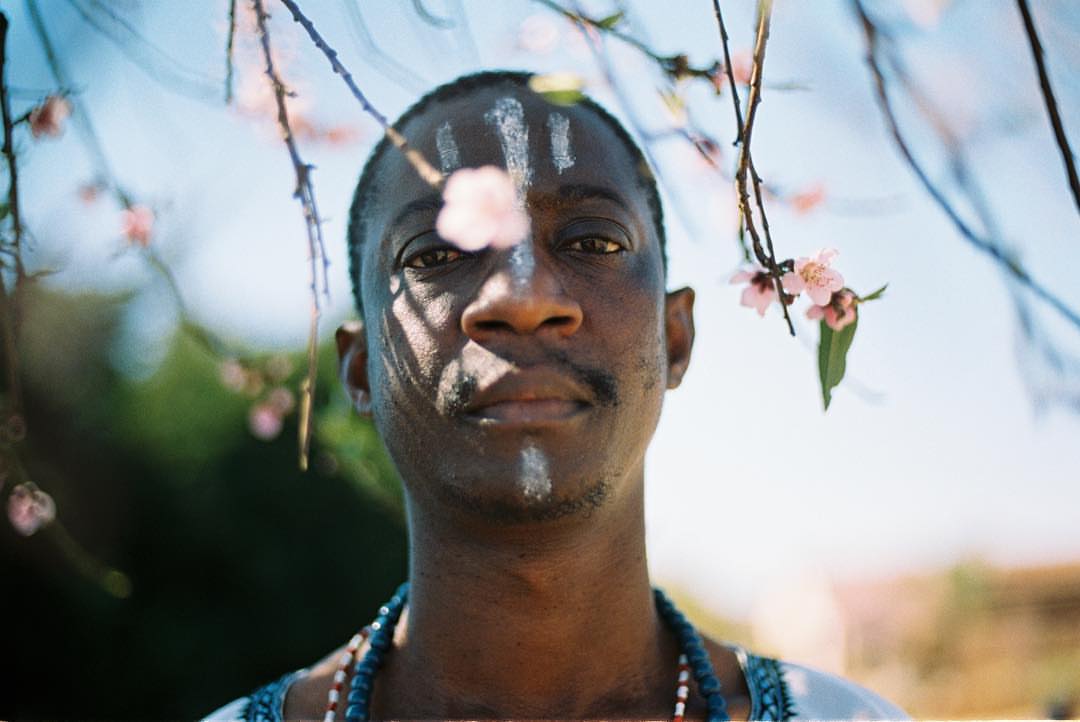It is said that music is one of the earliest, most enduring forms of storytelling, shaping and creating powerful life changing experiences one note at a time.
Malombo is a word drawn from tshiVenda, which specifically refers to traditional ceremonies – where dancing to music occurs during a rite of exorcism or healing. Drumming styles originating from these ceremonial roots proceeded to influence a seasoned array of jazz musicians – such as the late, great Dr Philip Nchipi Tabane, who dynamically fashioned malombo music into a genre of its own in the early 1960s.
Vocalist and master percussionist, Thabang Tabane, expands the parameters of what is essentially an art form built by his father, in order to showcase vibrational catharsis through the intersection of brisk tempos, nimble basslines and the polyrhythms of the malombo drums. Honing an insistent, enchanting sense of groove through his single-minded approach of present-day malombo.
Recorded live from his backyard in Mamelodi, Pretoria, ‘Nyanda Yeni’ serves as the first taste from his forthcoming debut album Matjale, to be released this September under Johannesburg based, independent music imprint, Mushroom Hour Half Hour.
The track finds Sibusile Xaba’s “angular, tweaked guitar” and Thabang’s percussive effervescence virtually flirting with “miniature whirling dervishes. In an almost dizzying, looping game of never-ending hide-and-seek, the traditional plea for rain is silk-spun into malombo modernity.” – quoted from Mushroom Hour Half Hour’s Soundcloud page.
Titled after his grandmother Matjale – a spiritual healer who ritualistically hummed soothing tunes throughout his childhood – the contemporary Africanism advocate was urged to sketch a dynamic blueprint of the genre that simultaneously reflected his journey as a black man from the 012.
The music video was directed and edited by record collector, archivist, and award winning documentary film director/producer, The StraitJacket Tailor. “The video is composed primarily of archival footage taken from apartheid-era cinema from South Africa endorsing the notion of ‘separate development’. By taking apart old propaganda films and their fallacies of coonish fantasy, it slices and splices them in order to re-order their meanings. In other words, it subverts. Taking us for a loop. Also included in the film are short video clips of the legendary, late Dr. Philip Tabane performing, creating an arch that links father and son in life, love and malombo.” – quoted from Mushroom Hour Half Hour’s website.
The visuals had me straight reminiscent of Joshua Sinclair’s Shaka Zulu series that used to play on SABC 2, intersected by flashbacks of ‘swimming days’ back in primary school where everyone would line up anxiously in anticipation of a young splish-splash. Only to propel me further into fantasies of how I’d imagine myself gyrating and busting out incisive shoulder-popping – all while sitting in the corner watching everyone else break a sweat on the dancefloor (intense, I know).
Titled after Cameroonian bass player Richard Bona, Thabang’s second offering Richard is a refreshing utterance of new-wave malombo, and is described as “a truncated, dubby bassline [that] provides the footing for a nimble, reprised riff that meets its comeuppance in the song’s climactic breakdown.” Moreover, “vocally, Tabane inserts himself in the song’s meter, teasing out its melodic contours and later decoding its guitar phrases into lyrics about the state of black life in his country.” – quotes from Mushroom Hour Half Hour’s Soundcloud page.
The drums and vocal inserts teleport me to an imaginary dimension of me donning an impressive Fela Kuti jumper, dancing barefoot on moist soil just after an afternoon of summer rain on a sultry Saturday evening – riveting.
Keep it locked on Mushroom Hour Half Hour’s website and social pages for more details on the Matjale album launch.



